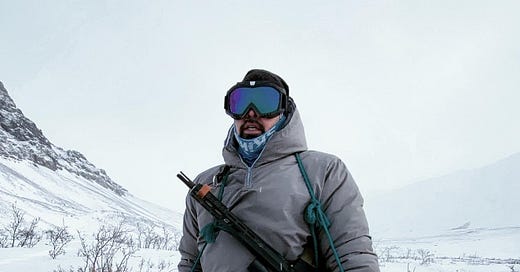Two short profiles to go with Saturday coffee. A heads up—this letter contains images of animals killed during hunts. They’re not particularly graphic, though for some viewers they might be surprising. I shared them with my 4-year-old this morning and spent some time explaining what they showed, what they meant. At the beginning of our talk he decided t…
Keep reading with a 7-day free trial
Subscribe to Don't Save Anything to keep reading this post and get 7 days of free access to the full post archives.



